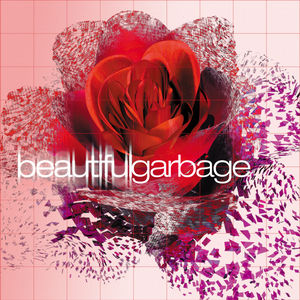Published on Jun 18, 2003
I am almost terrified to write a review of a Garbage album. When
Version 2.0 came out, I dismissed it for being too
synthetic, not enough slow, menacing grooves, too hyper, too rave.
Then, at a party in 1999, I heard
Version 2.0 again and it sank in, infecting me immediately.
What was a major disappointment in 1998 turned into the “great rock
album that almost got away from me” discovery of 1999.
So, when
Beautifulgarbage was released in 2001, it didn’t initially
set well with me. But, I remembered how
Version 2.0 grew with each listen, so I went easy on their
2001 release. I gave it chances. I listened to it again and again.
However, unlike
Version 2.0, the more I listened to Beautifulgarbage, the
more its weaknesses were revealed.
One of the major strengths of
Version 2.0 when came out was the confidence displayed with
the band and especially Shirley Manson’s voice. Even if you
preferred the slow-burning grooves of their landmark first album,
you had to admit that
Version 2.0 sounded like a band ready to take on the world.
But, that was before the invasion of the Britneys and boy bands.
Youth has always dominated music, but in late ’90s and early ’00s,
it seemed to be everything. And Garbage was a bunch of middle-aged
men and a lead singer well into her 30s.
Instead of bucking the trends and trying to go their own way, it
seemed that Garbage was genuinely intimidated with this new slant
on popular music. Billy Corgan famously blamed the new fickle trend
of audiences as being the main reason why the Smashing Pumpkins
disintegrated. But Garbage stuck together. And for the majority of
Beautifulgarbage, it seemed like the band was so conscious
of fitting in on radio that it forgot their most appealing asset:
making really, really good pop and rock songs.
Take songs like “Shut Your Mouth,” “Cherry Lips (Go Baby Go!)”
and “Breaking Up The Girl”: Manson’s vocals seem to be lighter than
air, rather than her traditional low-octave raspy growl. The
glossy, lip-smacking production of these three songs goes down
easy, but it’s too slick to resonate. In interviews before
Beautifulgarbage was released, the band (especially drummer,
uber-producer Butch Vig) expressed concern about how many albums
were left in the band. Overproduction is one of the major signs of
desperation. And that is one of
Beautifulgarbage’s biggest faults.
One of the most annoying songs on
Beautifulgarbage is the Phil Spector-heavy “Can’t Cry These
Tears.” It seems to be a cute, tongue-in-cheek homage to ’60s
supergroups like The Supremes. But the novelty wears thin quickly
and it’s a track that calls out for ‘Skip’ each time you put it in
your player.
Still, Garbage is a band with too much talent to succumb to
outside pressure. As much as the music sagged on this release, most
of the lyrics are still great. Shirley Manson is still consumed
with self-doubt. Her greatest songs are ones where her lyrics
reflect an intensely vulnerable side to her while her vocal
delivery reflects a cocky arrogance.
The best songs on
Beautifulgarbage are the ones where it seems that the band
ignores the pressure to create a hit single and deconstruct the
traditional pop song formula. “Til The Day I Die” features one of
Steve Marker’s patented loops that get cut, shredded, diced and
reprocessed into a killer riff. And “So Like a Rose” is arguably
the most heartbreaking song Garbage has ever written.
So, in essence, this sounds like an album that was destined to
be an album released before a greatest hits package came out: an
album that two or three songs could fit alongside their staples,
such as “Special” and “Only Happy When It Rains.”
Beautifulgarbage was Garbage’s poorest-selling album to
date, proving that aiming for commercial gain at the expense of
what made you unique in the first place, may not be that great of a
payoff (pay attention, Liz Phair).
Still, there may be a great payoff for Garbage yet. It seems
that the spotlight is no longer on the band. This leaves the band
with two choices: either retire and blame fickle audiences for
doing the band in, or take advantage of the low priority and
release an album that the band wants to release, without the
pressure from record execs. Here’s hoping that they choose the
latter.
